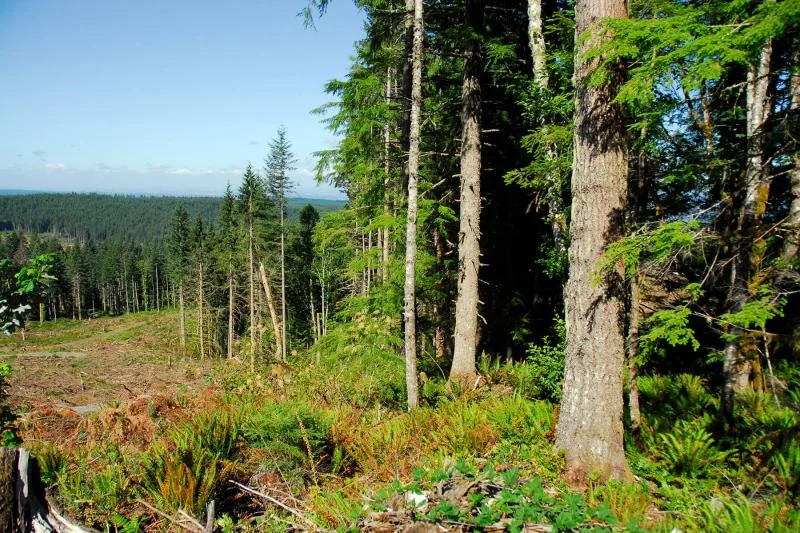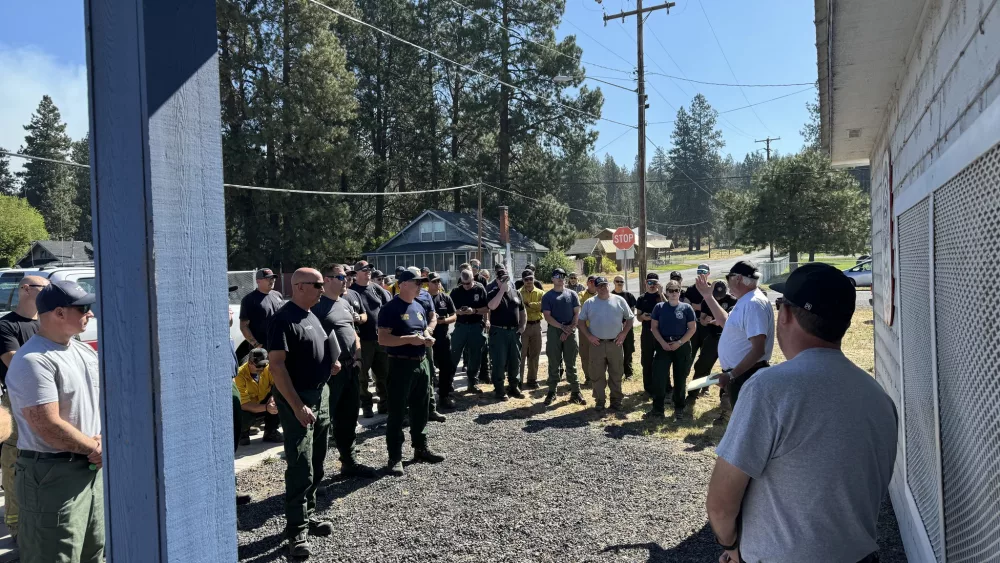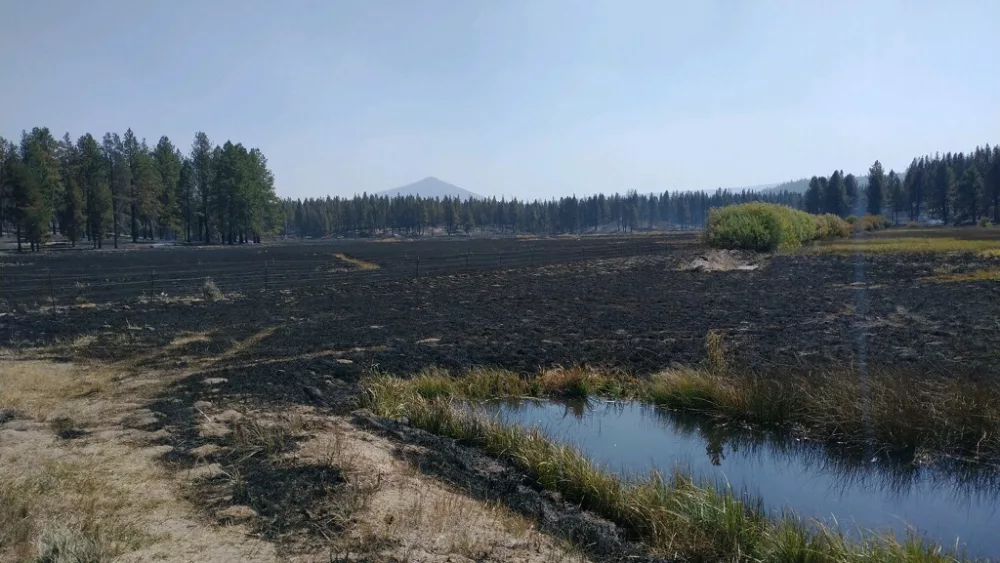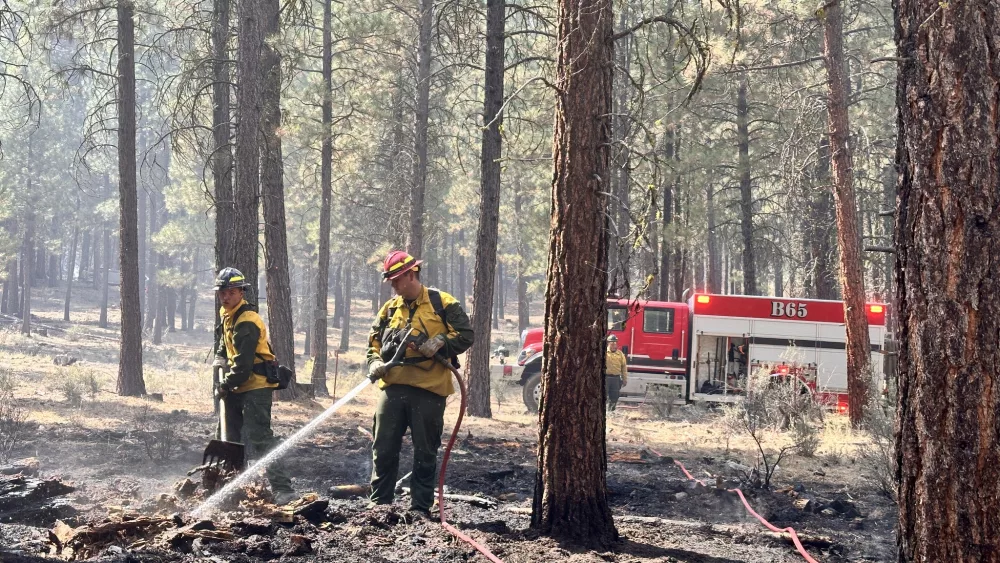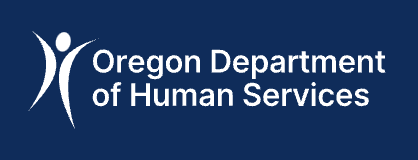PORTLAND, Ore., July 26, 2024 — The U.S. Department of Agriculture’s Forest Service is making $190 million available to help private forest landowners adapt to and mitigate the impacts of climate change and retain working forestlands.
“Climate change threatens people, communities, infrastructure, and natural resources across the country,” said USDA Secretary Tom Vilsack. “Healthy, resilient forests can better withstand climate change impacts, and contribute to climate solutions by storing additional carbon. Thanks to President Biden’s Inflation Reduction Act, we are partnering with states and nonprofits to reduce financial barriers for landowners interested in adopting climate-smart forestry practices and making their lands more resilient to climate change. These strategic investments represent our commitment to an all-lands, all-hands approach to investing in rural communities and mitigating the climate crisis.”
The long-term exclusion of restorative, low-severity fire on fire-dependent forests is already challenging forest health in the Pacific Northwest, something the Forest Service is addressing through its Wildfire Crisis Strategy and other fuels reduction programs.
Continued climate warming and related changes in rainfall and drought cycles further raises the stakes. Past and predicted climate changes are exacerbating stress for native trees and other vegetation, affecting water temperature, quality, and supplies, and contributing to the hotter, drier conditions and increased fuel loads that can produce larger, higher-severity wildfires.
“The Forest Service has a number of programs to support forest health and climate resiliency for private landowners, whose lands are just vulnerable to the effects of climate change and wildfire as the federal lands we manage,” said Chad Davis, Director of State, Private and Tribal Forestry for the USDA Forest Service Pacific Northwest Region. “The only effective way to address a challenge of this magnitude is by making coordinated investments in needed management actions on both public and private lands.”
Of the total, $140 million is available to support state-endorsed cost-share programs for landowners. Cost-share payments lower the financial barriers for landowners to adapt to climate change by making forests more resilient to changing climate conditions, and to store more carbon on the landscape. For example, a landowner may decide to work with states and non-profits to strategically thin their private forestland, removing small-diameter trees that compete for scarce resources, allowing large trees to grow larger and sequester more carbon.
Additionally, $50 million is available to programs that issue payments directly to landowners to adopt practices that increase carbon sequestration and storage of their forests. Forest management impacts the amount of carbon stored and sequestered, and this funding opportunity incentivizes carbon stewardship. Payments fund work and provide financial incentive to maintain land as forests rather than convert it to other uses. Eligible applicants include state forestry agencies, their equivalents, and nonprofit organizations.
“We all benefit from the forests we enjoy in the Pacific Northwest. This funding is to support these private forest landowners, to help ensure those lands remain forested and continue to clean our air, store carbon, cool streams, provide wildlife habitat, and enhance our economies – for us, and for future generations,” Davis said.
Privately owned forests and private forest landowners are key to tackling the climate crisis. Private landowners manage more than 60% of forests in the United States. These vast swaths of privately managed forests are key to the carbon cycle and are an important climate solution, absorbing vast quantities of carbon and storing it for decades.
The Forest Service is committed to supporting landowners as they manage their forests in a changing climate. In addition to these investments, the agency recently announced $145 million from the Inflation Reduction Act for projects that connect private forest landowners with emerging climate markets.
For more information about the available funding opportunity, including eligibility and how to apply, visit the Forest Landowner Support webpage, at https://www.fs.usda.gov/about-
The Forest Service also recently launched a Community Navigator Program to help landowners, state, local and Tribal governments, businesses, non-profits and other organizations, find more information about funding opportunities and technical assistance they may be eligible to apply for to assist in efforts that promote the health and resiliency of America’s forests.
Navigator services are provided through community partners, many of which have specific experience identifying and addressing needs for specific communities, industries, or land management entities. More information can be found at: https://www.fs.usda.gov/
For more news & information about National Forests in the Pacific Northwest, visit our news page at https://www.fs.usda.gov/news/
The mission of the USDA Forest Service is to sustain the health, diversity, and productivity of the nation’s forests and grasslands to meet the needs of present and future generations. The agency manages the 193 million acres of National Forest System land, provides stewardship assistance to non-federal forest landowners, and maintains the largest forestry research organization in the world.
For more information about the USDA Forest Service visit https://www.fs.usda.gov.

